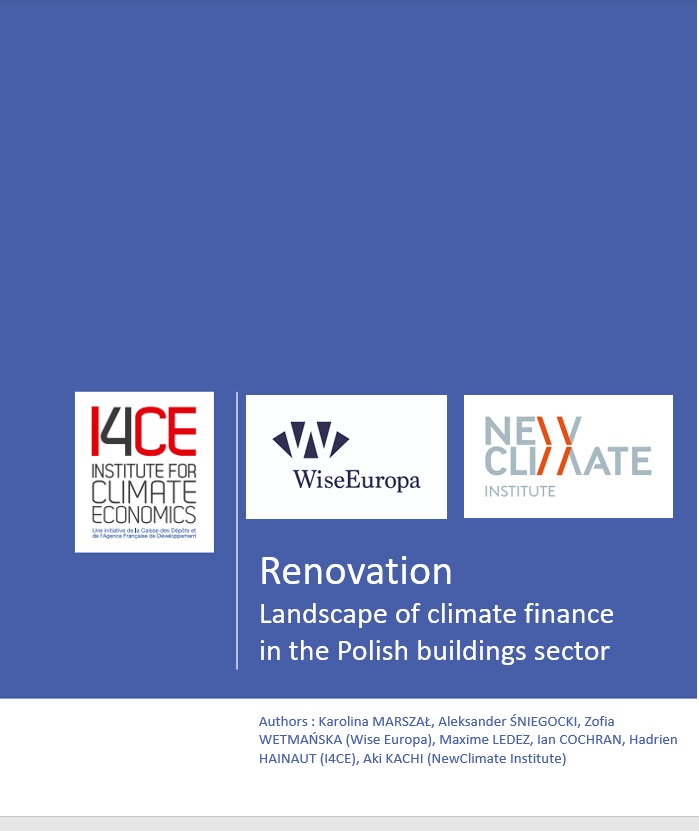Renovation – Landscape of climate finance in the Polish buildings sector
As part of the EUKI-supported project “Landscape of climate finance: Mainstreaming climate finance in the CEE region”, I4CE supported the Polish think-tank Wise Europa in the elaboration of a Landscape of climate finance in the sector of energy retrofitting of existing buildings in Poland.
This study estimated both the investments in the various renovation operations, and the financing instruments used by the various project managers (households, companies and public authorities) to carry out their investments.
Click on this button to see the image
A methodology developed to support decisionmakers
For the last three years, I4CE, NewClimate Institute and Wise Europa have been working together to engage with stakeholders in Central and Easter Europe and document investment and funding efforts contributing to the decarbonation of different sectors in Poland. Relying on close to a decade of experience of the Landscape of climate finance in France, I4CE has assisted its partners with this unprecedented exercise in Poland. To support improved policy making, the study analyses the leverage effect of public expenditure on public and private investments contributing to climate change mitigation.
A major intervention of the public authorities in Poland
Over the 2014-2019 period, Polish public authorities invested PLN 13 billion (around €2.9 billion) in energy retrofitting, i.e. 56% of total investment in this sector. Their investments, principally financed by EU funds, largely decreased over the period 2017-2019. However, households considerably increased their investments in 2019, thanks to the introduction of the thermal modernisation tax relief and the expansion of the Clean Air programme.
Energy retrofitting: one of the investment sectors to be prioritised in the economic stimulus package
Responding to the COVID19 economic crisis, recovery programmes are an opportunity to accelerate the decarbonisation of existing buildings by directing more public funds to this sector. The authors recommend that public authorities should use this opportunity to support the low-carbon transition. To do so fully will require the implementation of additional measures to help increase climate-consistent investment in the building sector. These include, among others: long-term financing programmes for the sector, considering the efficiency of renovations in the granting of public subsidies, promoting renovation actions among the various economic actors.
This report was financed by the European Climate Initiative (EUKI) of the German Federal Ministry for the Environment, Nature Conservation and Nuclear Safety (BMU). It is the overarching goal of the EUKI to foster climate cooperation within the European Union (EU) in order to mitigate greenhouse gas emissions. The opinions put forward in this workshop are the sole responsibility of the organizers and do not necessarily reflect the views of the Federal Ministry for the Environment, Nature Conservation and Nuclear Safety (BMU).
Supported by:



